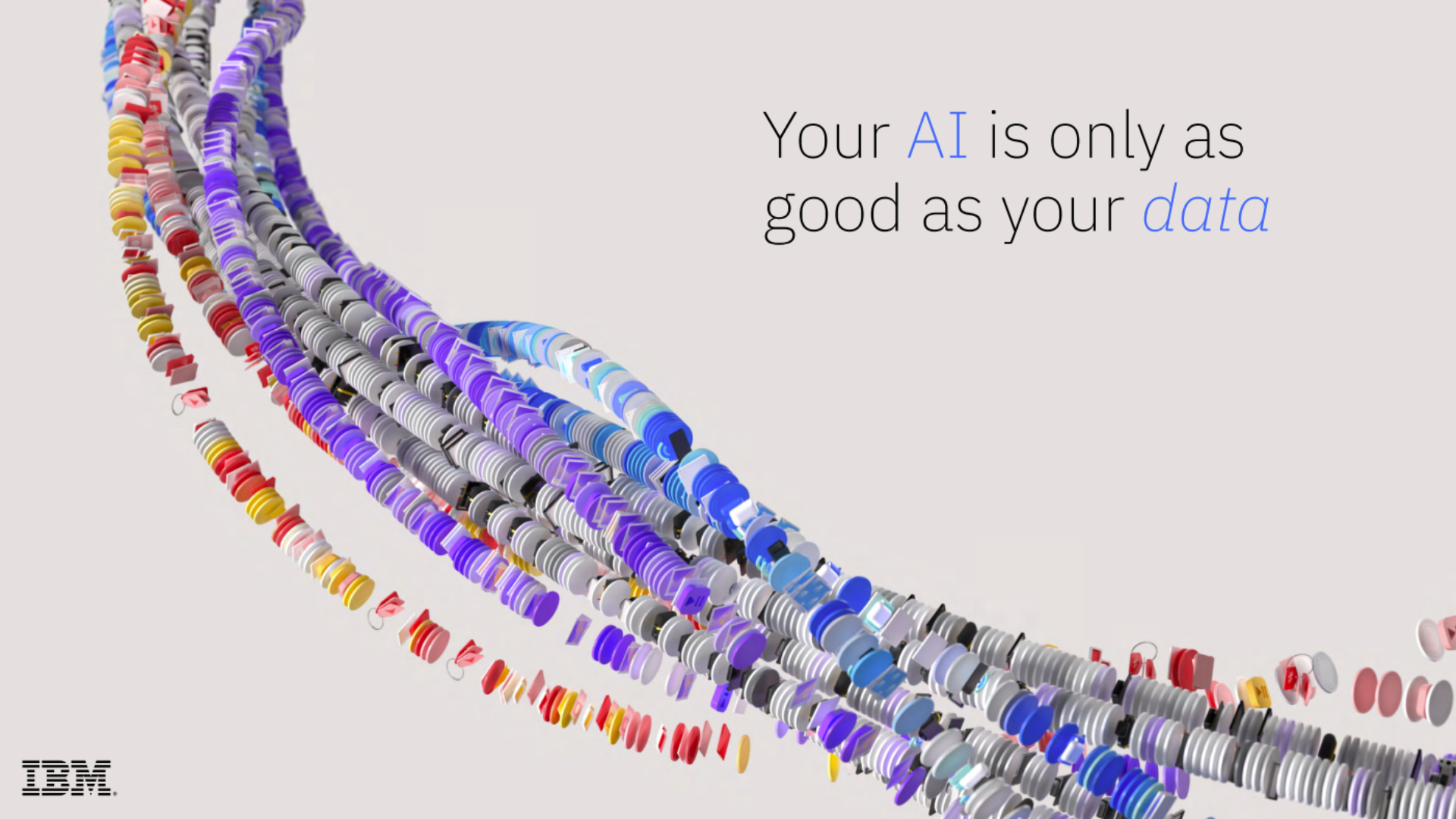Microsoft Copilot for Viva brings AI to employee experience
Leaders can make use of new analytical and generative AI tools to improve workforce engagement

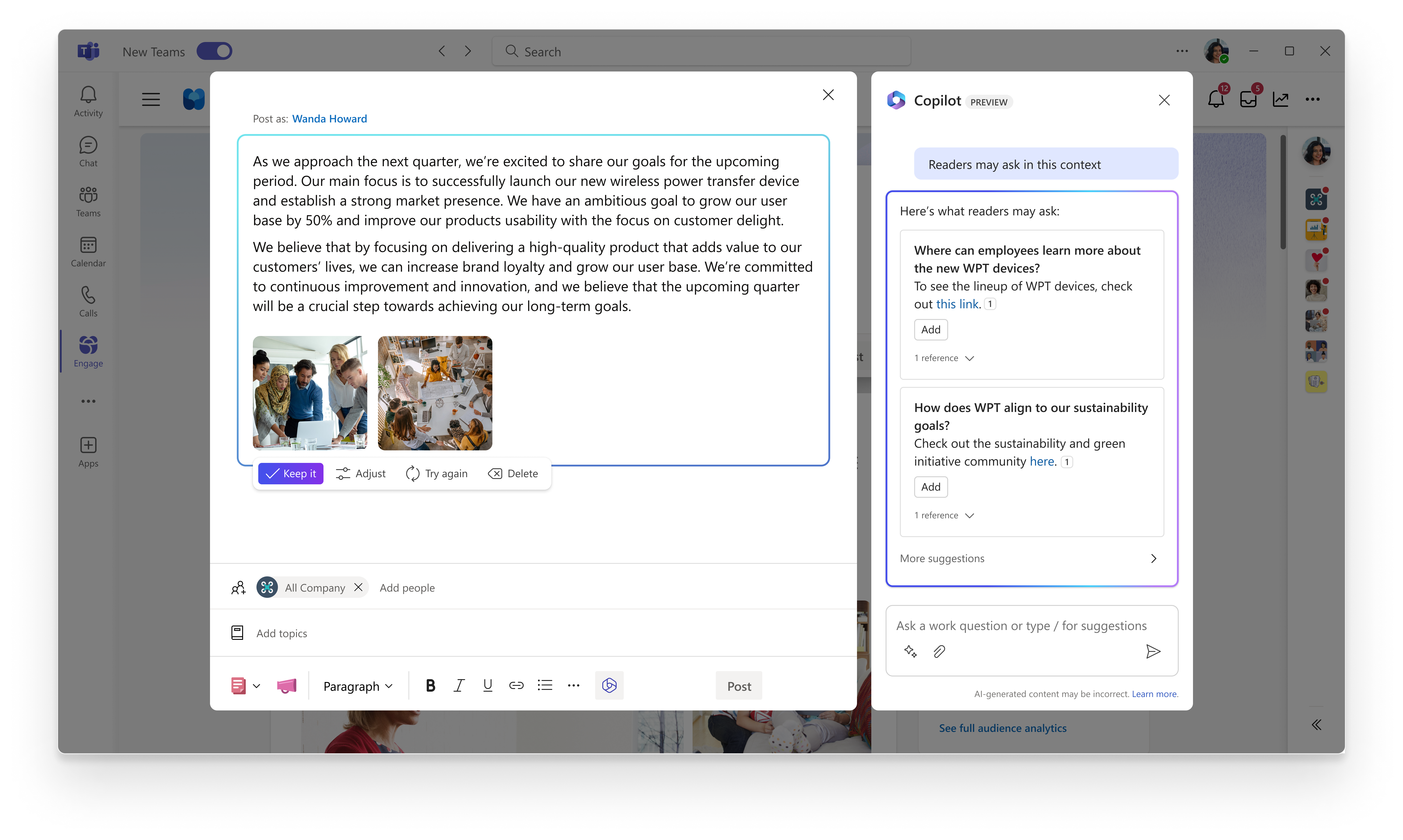
Microsoft has announced it will add Copilot AI to its Viva suite, allowing firms to use the power of generative AI to measure employee satisfaction and stay communicative.
Leaders will be able to view employee engagement data across their organization from a single dashboard using natural language prompts, as well as identify what will motivate and resonate with employees.
Copilot will group survey results with measurements of employee sentiment and what topics are popular throughout the workforce at any given time.
For example, an employer can select the suggested prompt ‘Summarize comments from my least engaged team’ for a detailed description of this team’s grievances.
Along with organization-wide results, Copilot is capable of answering questions relating to regional teams too - in a video example, the employer rephrased their query to get engagement data for a team based in North America.
Microsoft has also announced that as part of this unified dashboard, Glint, the employee engagement measurement platform, will become part of the Viva Suite in July 2023.
Viva Glint will be available with Copilot, which will provide summaries and analysis for employee feedback.
Sign up today and you will receive a free copy of our Future Focus 2025 report - the leading guidance on AI, cybersecurity and other IT challenges as per 700+ senior executives
Using generative AI capabilities, Copilot can also draft posts in the workplace community app Viva Engage, either from draft prompts, trending topics, or using an internal document as a basis for the post.
In a video example, Microsoft showed off Copilot creating a quarterly goals post, changing the tone to be “more inspirational” upon user request, and generating images to improve the reach of the post.
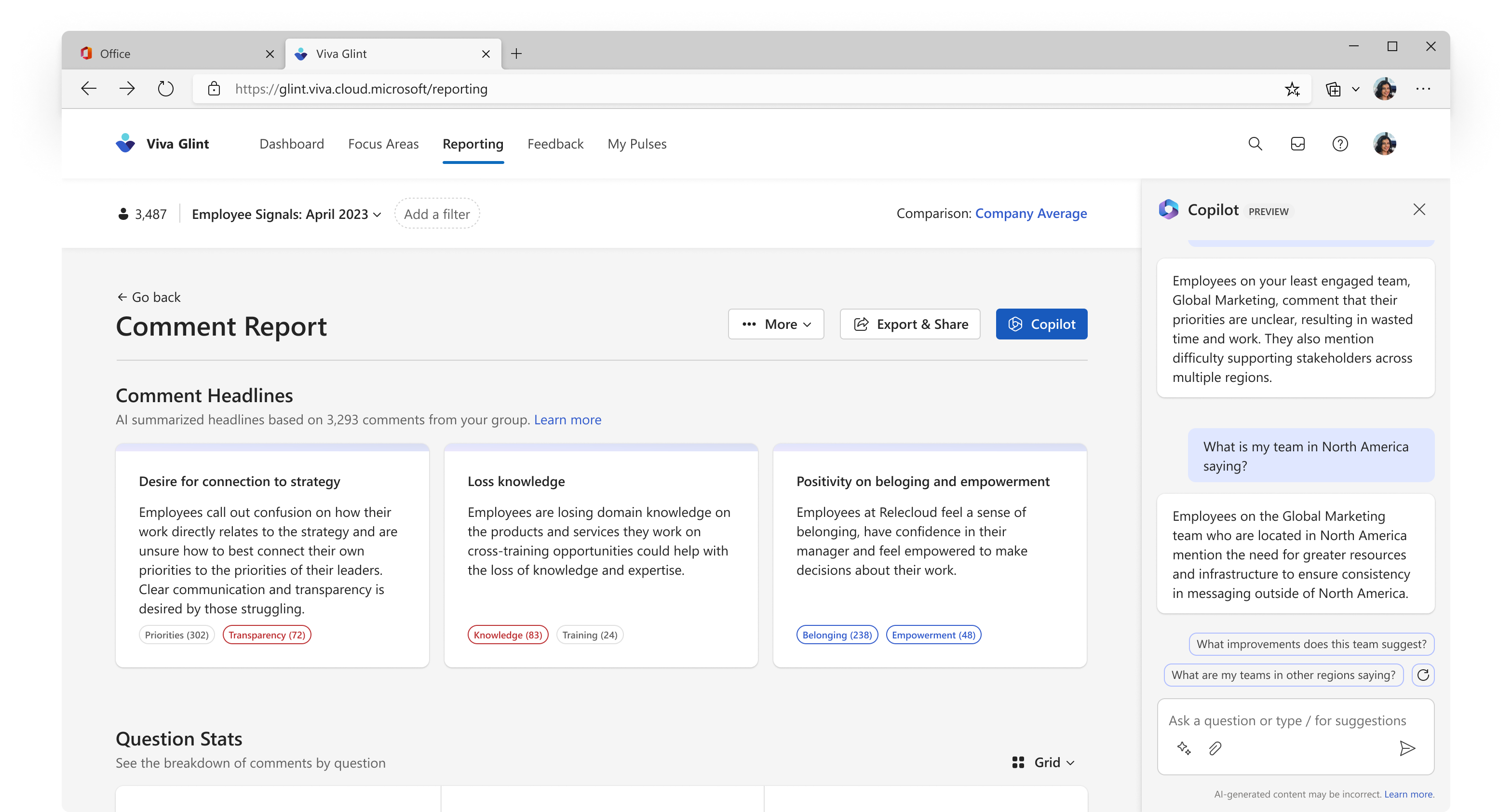
Once a post has been sent, Copilot will compile engagement metrics such as view and like counts for easy observation by leadership teams.
The AI will also summarise comments and provide an analysis of how the post was received within a company’s workforce.
The system is capable of complex analysis drawing on Viva Glint data, network data from Viva Insights, and the Microsoft Graph to combine metadata from across an organization.
In an example, Copilot was able to neatly summarize whether teams in a specific firm were more engaged as a result of having regular in-office days, with engagement ranked on an objective scale across the workforce.
RELATED RESOURCE
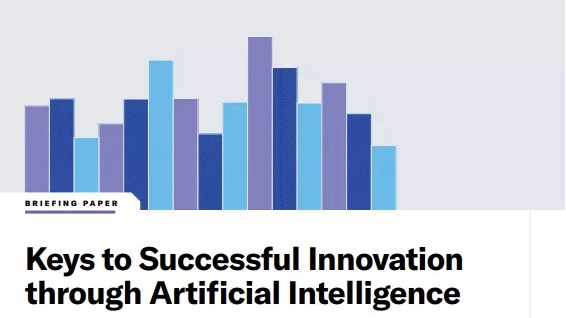
Keys to successful innovation through artificial intelligence
Harvard Business Review
Copilot is also capable of suggesting learning plans for employees through integration with Viva Learning and can curate these on a per-role basis for intelligent training or upskilling.
On a smaller scale, employees can use Copilot in Viva Topics to get quick information on key topics for their role, while Copilot in Answers can assist employees in selecting good citations for written tasks.
Launched in 2021, Microsoft Viva is 365 and Teams’ integrated employee experience platform. It encompasses internal communication channels, company-wide training, and policy hubs, as well as aligning productivity and strategic goals.
Viva is the latest Microsoft offering to receive the firm’s growing number of ‘Copilot’ AI assistants.
Last month, the company announced Microsoft 365 Copilot to bring generative AI to its popular productivity suite, as well as the powerful Microsoft Security Copilot which will allow security teams to intelligently improve their posture.
The increased offering in AI products has come about as a result of Microsoft’s $10 billion OpenAI investment, with the tech giant now in a position to integrate the AI firm’s powerful GPT-4 model across its software suite.
How important is employee engagement?
Alongside the announcement, Microsoft published a new report on more than three million employees across 200 companies worldwide in conjunction with combined stock price movements among these firms.
It found a positive correlation between employee engagement and strong financials, with each point of engagement reported by companies correlating with $46,511 in extra market cap per worker.
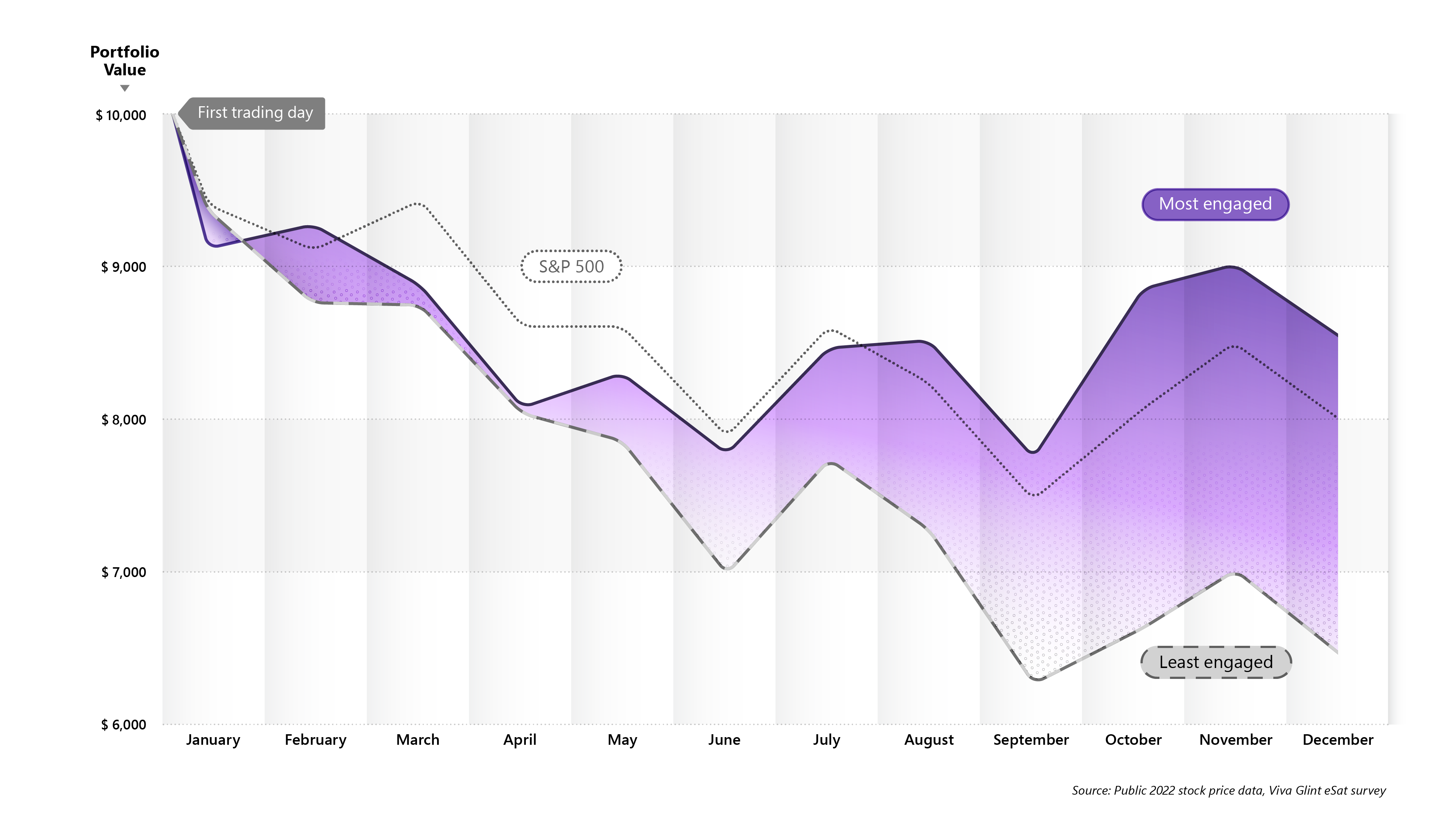
Overall, firms that focused on engagement in their workforces demonstrated financials double that of competitors who chose not to prioritize engagement.
Employees were also shown to value clear communication, with those at organizations where leaders were engaged and communicative being 37% more likely to report confidence in their higher-ups.
The researchers called for organizations to create a “feedback flywheel”, in which employee feedback and behavioral data are continually combined for analysis, and prompt regular action at a leadership level.
In addition to the stronger financial performances observed in companies that followed this philosophy more closely, companies stood to benefit from improved employee retention.
The report’s data showed that employees who felt their firm was poor in communication were twice as likely to quit compared to those who were happy with their company’s level of discussion and engagement.

Rory Bathgate is Features and Multimedia Editor at ITPro, overseeing all in-depth content and case studies. He can also be found co-hosting the ITPro Podcast with Jane McCallion, swapping a keyboard for a microphone to discuss the latest learnings with thought leaders from across the tech sector.
In his free time, Rory enjoys photography, video editing, and good science fiction. After graduating from the University of Kent with a BA in English and American Literature, Rory undertook an MA in Eighteenth-Century Studies at King’s College London. He joined ITPro in 2022 as a graduate, following four years in student journalism. You can contact Rory at rory.bathgate@futurenet.com or on LinkedIn.
-
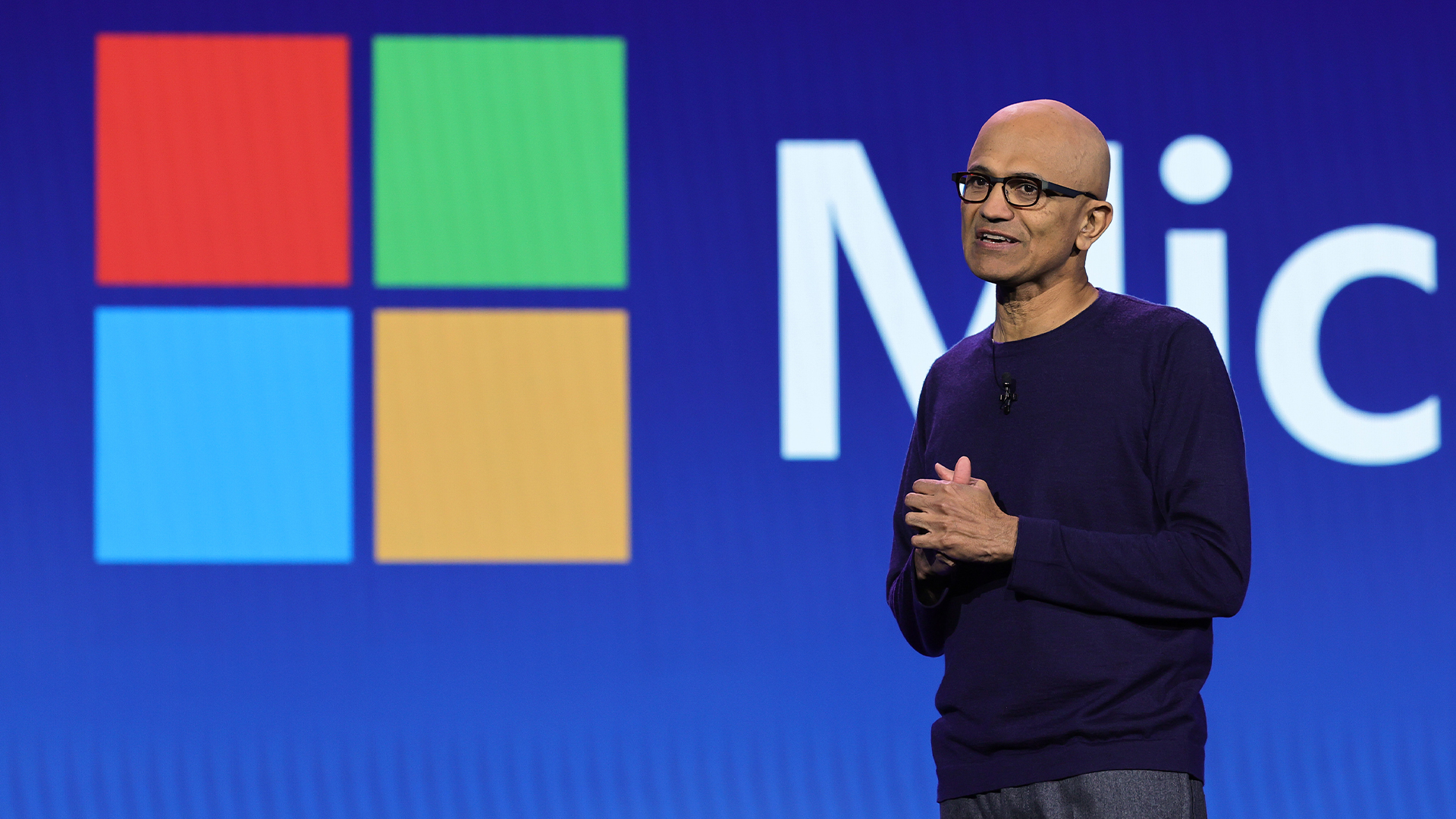 Satya Nadella says “our multi-model approach goes beyond choice’ as Microsoft adds Claude AI models to 365 Copilot
Satya Nadella says “our multi-model approach goes beyond choice’ as Microsoft adds Claude AI models to 365 CopilotNews Users can choose between both OpenAI and Anthropic models in Microsoft 365 Copilot
-
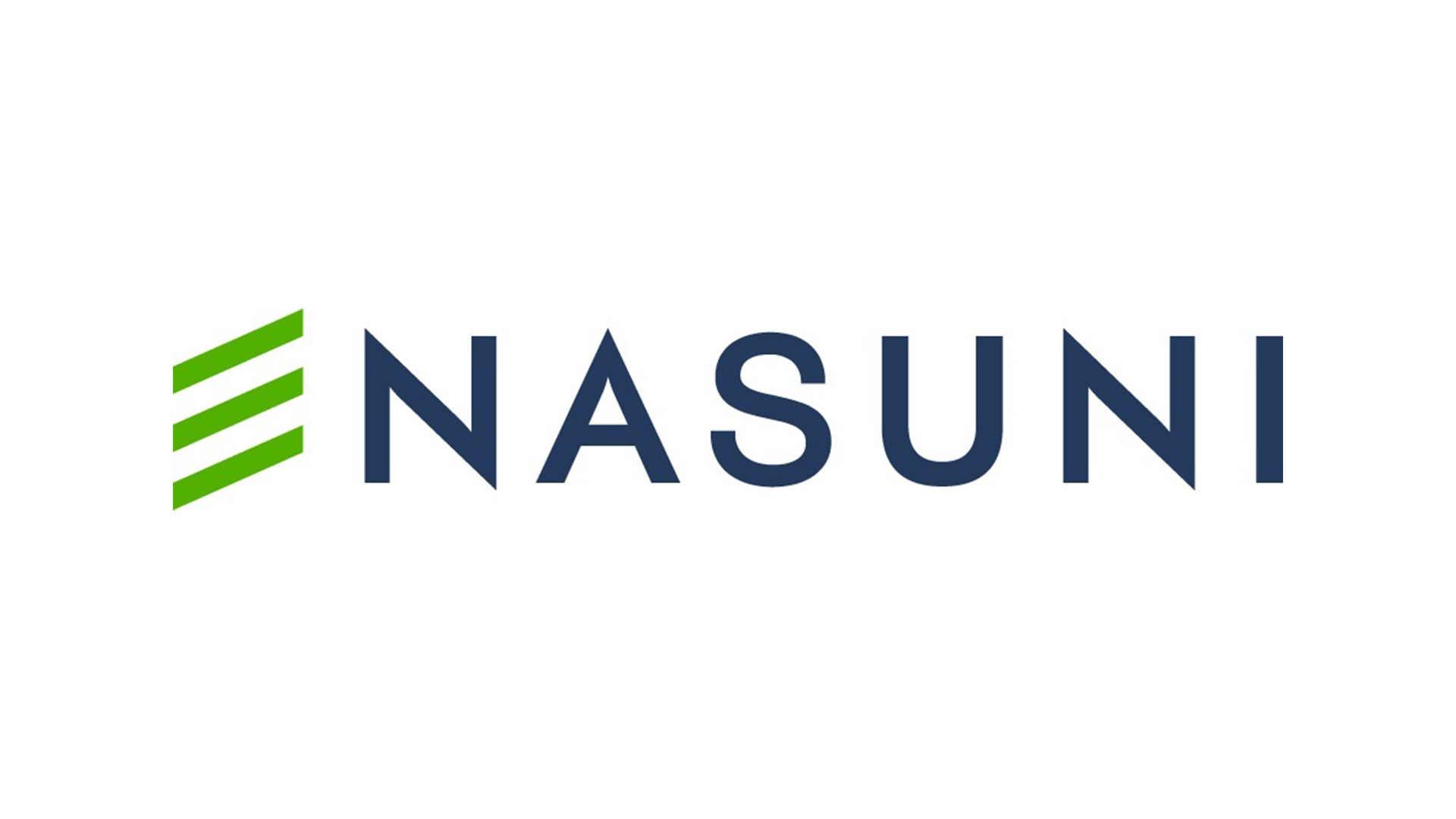 Nasuni announces new Microsoft 365 Copilot integration
Nasuni announces new Microsoft 365 Copilot integrationNews Nasuni’s File Data Platform now includes integration with the Microsoft Graph Connector to enhance data access for Microsoft’s AI services
-
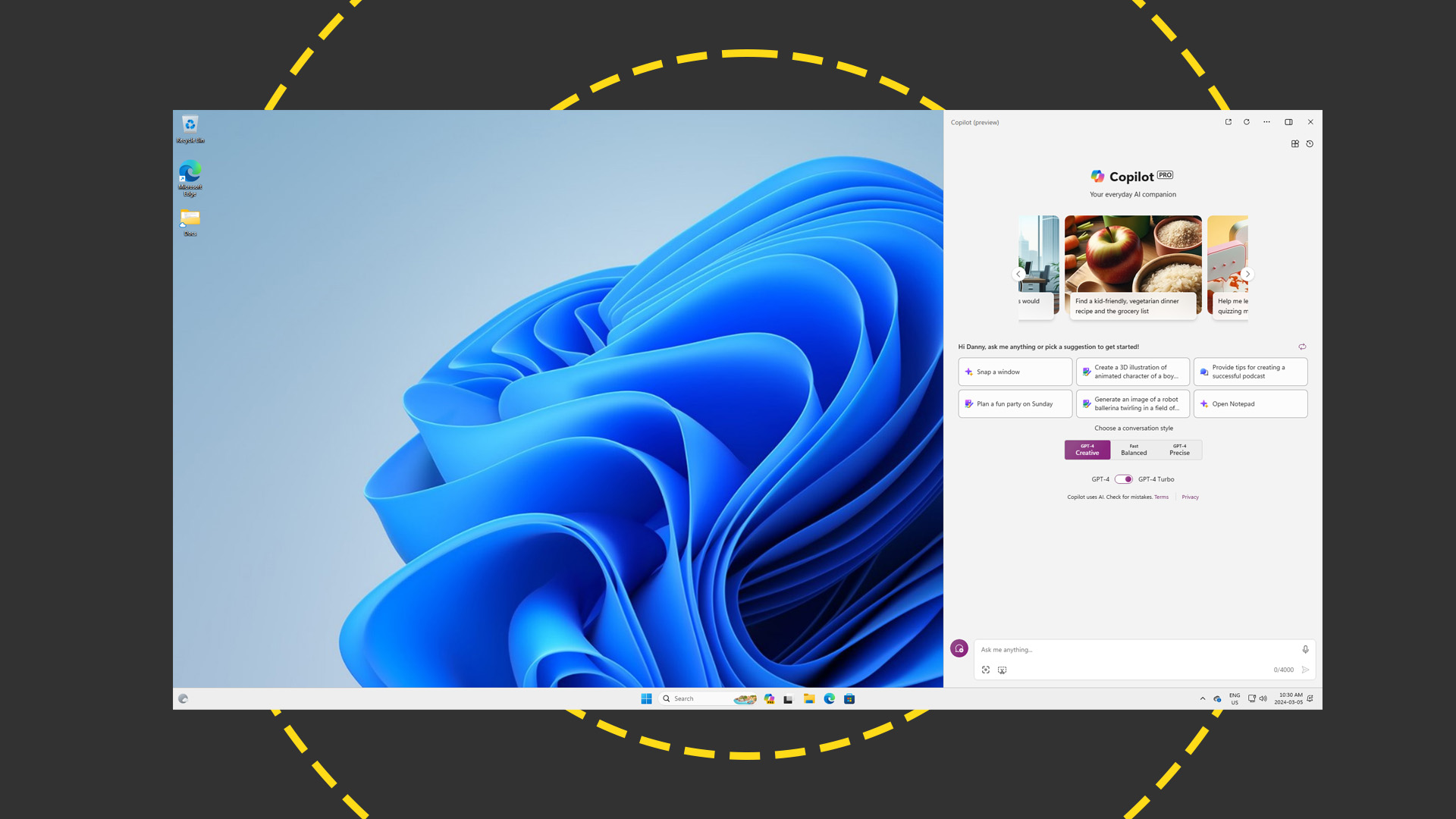 Microsoft Copilot review: AI baked into your apps
Microsoft Copilot review: AI baked into your appsReviews Microsoft already provides generative AI online – now it's putting it inside its operating systems and apps but the results are mixed
-
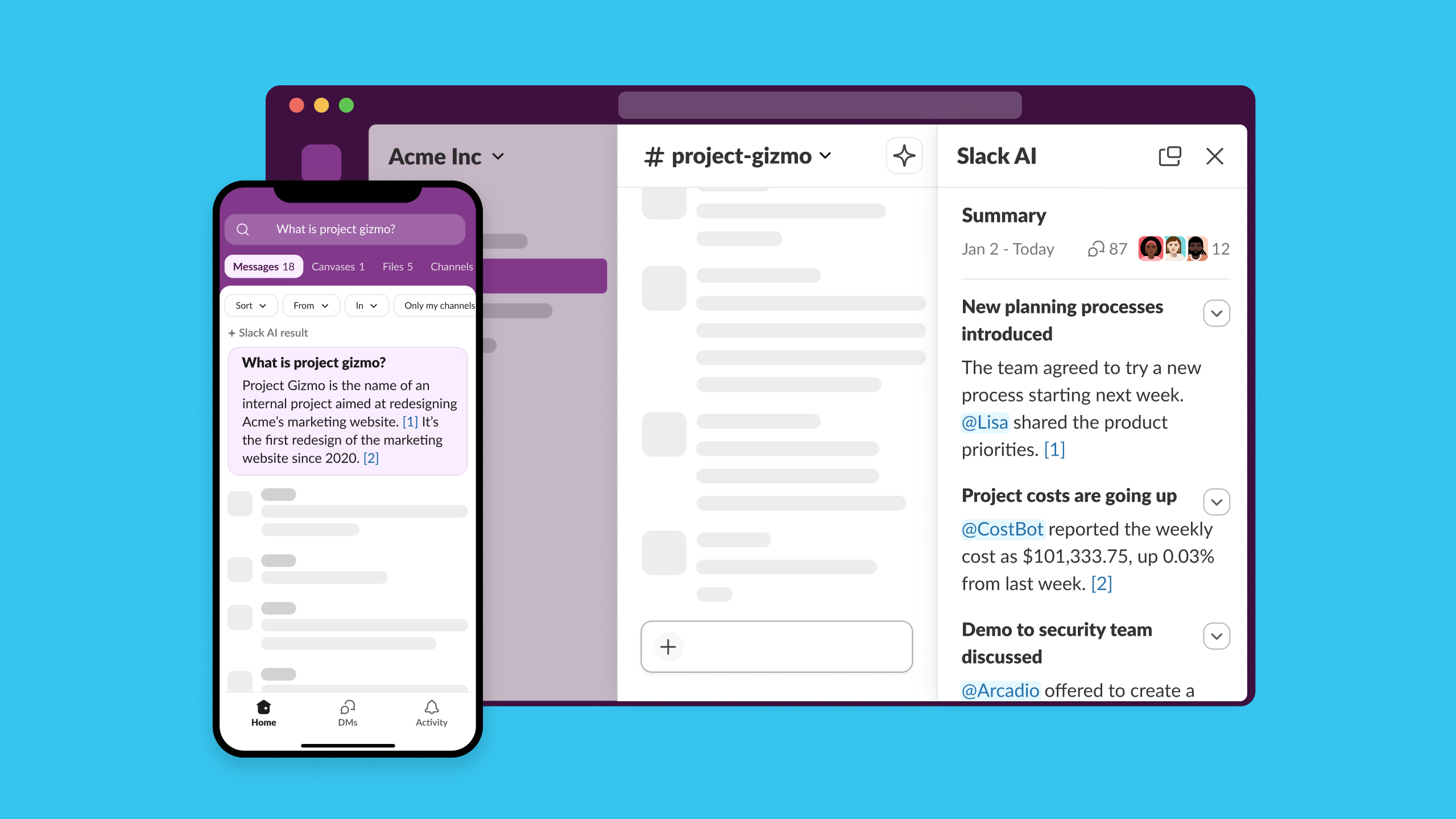 Slack AI: Everything you need to know about the platform's new features
Slack AI: Everything you need to know about the platform's new featuresNews New Slack AI features look to supercharge user productivity and collaboration as the firm targets intense competition with industry competitors
-
 Everything you need to know about Microsoft Copilot Studio
Everything you need to know about Microsoft Copilot StudioNews The new Microsoft Copilot Studio will allow customers to create their own AI assistants
-
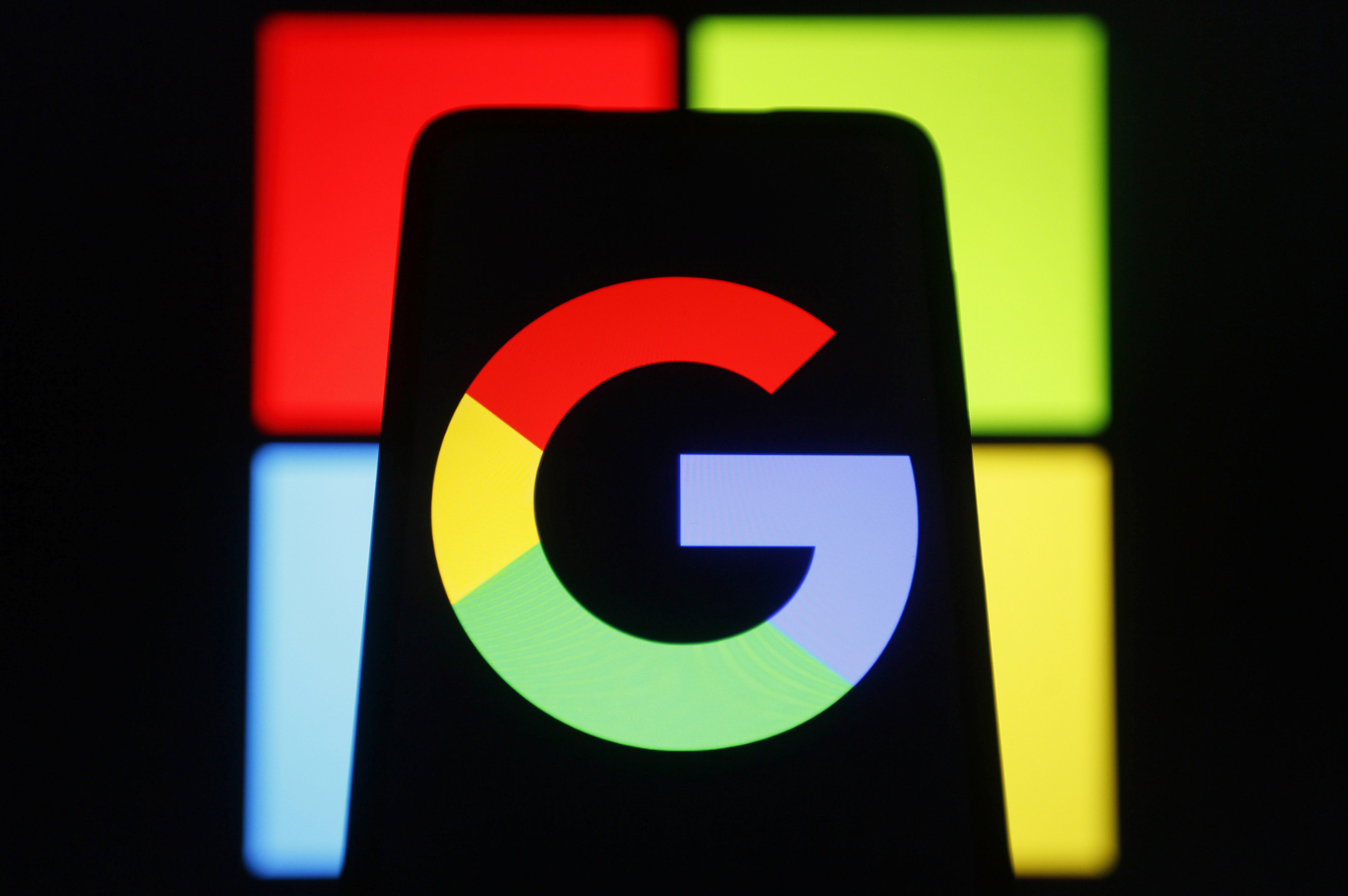 Duet AI vs Copilot: All the similarities and differences
Duet AI vs Copilot: All the similarities and differencesAnalysis Google has embedded generative AI across the entirety of its Workspace apps, but how does it compare to Copilot and what are its advantages?
-
 Microsoft: 'People care more about AI's benefits than their job security'
Microsoft: 'People care more about AI's benefits than their job security'Microsoft’s 2023 Work Trend Index also showed workers have less focus time than ever, hindering innovation
